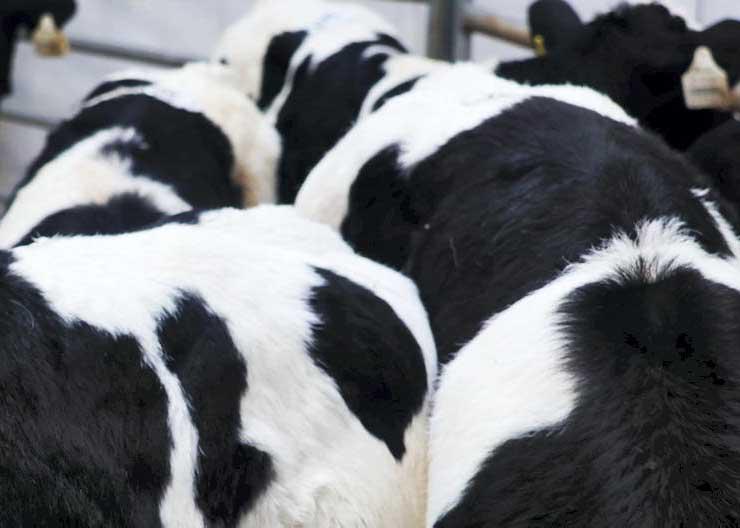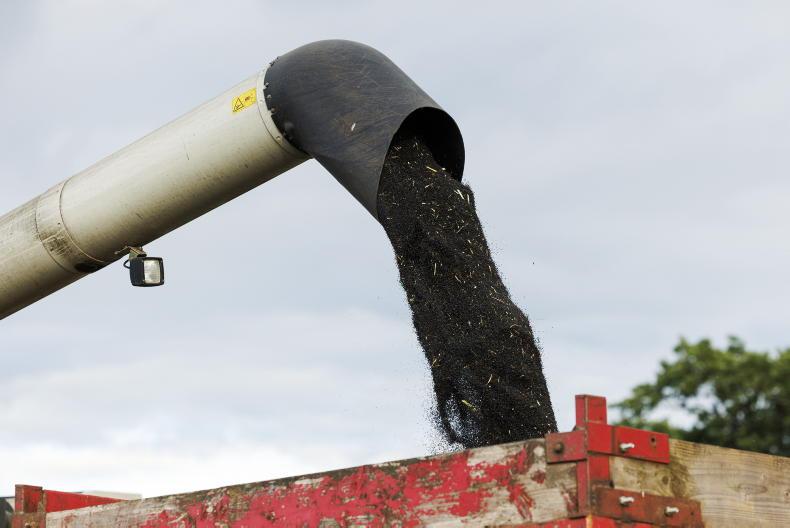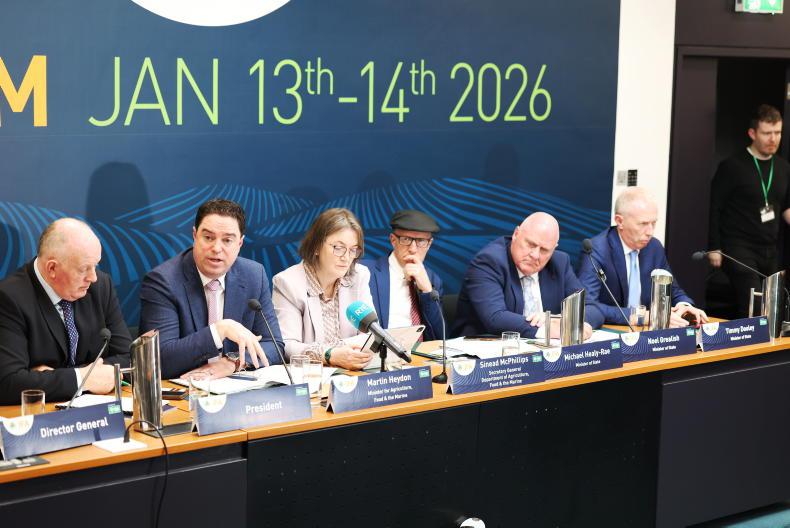The small print of the EU’s nature restoration law proposed by the European Commission could see Ireland legally obliged to rewet more land than explicitly stated in the law, the joint Oireachtas committee on agriculture has heard.
Copa-cogeca policy adviser on biodiversity Niall Curley told the Oireachtas committee that, although the proposals contain separate restoration and rewetting targets for drained, farmed peatlands, the only actual measure cited as suitable is rewetting.
The draft law states that 70% of each member state’s drained, farmed peatlands must be restored by 2050, with half of this area to be specifically placed under rewetting measures.
Approximately 300,000ha of the country’s farmland is peat soil, meaning that the law will necessitate the rewetting of 210,000ha of farmland, if passed in its current form.
“Even if you read the documents within the annexes, what restoration means is basically rewetting,” Curley said on Wednesday.
“They do not actually give examples of other measures other than rewetting to a certain extent and it does not mention to what level but rewetting is the main aim.
“The Commission have made no distinction between restoration and rewetting so the actual target, while it says restoration, is rewetting 70% by 2050.”
The Irish Farmers Journal reported in June that changes were made to the draft law to allow for the rehabilitation of turf bogs to count towards the rewetting target, allowing some farmland to be spared form the nature restoration measures.
However, the committee heard that these industrial peatlands could only count for 20% of Ireland’s total rewetting target and that the remaining 80% must be met by rewetting farmland.
“It’s people who drained their lands in the past 50 to 60 years or even more recently that will be most affected by this.”
It is expected that the law will be passed by Brussels by 2024.
Eco schemes not enough
Curley stated that CAP eco schemes would do little to help achieve the targets, with interim objectives to be met as soon as 2030 under the law’s current proposals.
“It is expected that these eco schemes, which are up until 2027 when the current CAP ends, are to aim for the fulfilment of these targets,” he went on.
“However, most of the eco schemes are not necessarily based on biodiversity and restoration measures and as a result, these targets will not be fulfilled under CAP eco schemes that the EU has given funding for.
“Ireland will, unless a lot of things change between now and 2030, not achieve the aims and the targets here.”
Ireland’s position
Regarding the possibility of Ireland pushing back against the proposals, the policy adviser stated the joint Oireachtas committee on housing would have responsibility for scrutinising the law to inform the country’s position on the EU legislation.
Ireland has been asked to examine whether it thought the law “overreaches” into national responsibilities but Government’s position remains unclear.
“A regulation, once it is implemented, becomes law and it is the law for the entirety of the EU,” Curley added.
Read more
Restoration measures cannot be forced on farmers – EU farmer group
Thousands of hectares of drained farm peatlands targeted for rewetting
State paying up €3,700/ac for raised bog
The small print of the EU’s nature restoration law proposed by the European Commission could see Ireland legally obliged to rewet more land than explicitly stated in the law, the joint Oireachtas committee on agriculture has heard.
Copa-cogeca policy adviser on biodiversity Niall Curley told the Oireachtas committee that, although the proposals contain separate restoration and rewetting targets for drained, farmed peatlands, the only actual measure cited as suitable is rewetting.
The draft law states that 70% of each member state’s drained, farmed peatlands must be restored by 2050, with half of this area to be specifically placed under rewetting measures.
Approximately 300,000ha of the country’s farmland is peat soil, meaning that the law will necessitate the rewetting of 210,000ha of farmland, if passed in its current form.
“Even if you read the documents within the annexes, what restoration means is basically rewetting,” Curley said on Wednesday.
“They do not actually give examples of other measures other than rewetting to a certain extent and it does not mention to what level but rewetting is the main aim.
“The Commission have made no distinction between restoration and rewetting so the actual target, while it says restoration, is rewetting 70% by 2050.”
The Irish Farmers Journal reported in June that changes were made to the draft law to allow for the rehabilitation of turf bogs to count towards the rewetting target, allowing some farmland to be spared form the nature restoration measures.
However, the committee heard that these industrial peatlands could only count for 20% of Ireland’s total rewetting target and that the remaining 80% must be met by rewetting farmland.
“It’s people who drained their lands in the past 50 to 60 years or even more recently that will be most affected by this.”
It is expected that the law will be passed by Brussels by 2024.
Eco schemes not enough
Curley stated that CAP eco schemes would do little to help achieve the targets, with interim objectives to be met as soon as 2030 under the law’s current proposals.
“It is expected that these eco schemes, which are up until 2027 when the current CAP ends, are to aim for the fulfilment of these targets,” he went on.
“However, most of the eco schemes are not necessarily based on biodiversity and restoration measures and as a result, these targets will not be fulfilled under CAP eco schemes that the EU has given funding for.
“Ireland will, unless a lot of things change between now and 2030, not achieve the aims and the targets here.”
Ireland’s position
Regarding the possibility of Ireland pushing back against the proposals, the policy adviser stated the joint Oireachtas committee on housing would have responsibility for scrutinising the law to inform the country’s position on the EU legislation.
Ireland has been asked to examine whether it thought the law “overreaches” into national responsibilities but Government’s position remains unclear.
“A regulation, once it is implemented, becomes law and it is the law for the entirety of the EU,” Curley added.
Read more
Restoration measures cannot be forced on farmers – EU farmer group
Thousands of hectares of drained farm peatlands targeted for rewetting
State paying up €3,700/ac for raised bog










SHARING OPTIONS